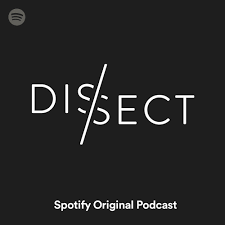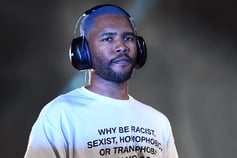“If you want something done right, you take your time.” These were the words that my dad would always pester me with growing up. Whether I was cleaning my room, or picking up branches from our massive willow tree in the backyard, I was constantly reminded to be intentional and diligent. I always found this advice quite annoying. I did not want to take my time picking up branches, I wanted to get back to doing whatever it was that I wanted to do. Ironically — however — I do not remember what I wanted to get back to, but I do remember picking up those willow tree branches.
We do not take our time with our media consumption nowadays. This can be seen with the rise of TikTok. The platform’s 15-second videos are incredibly easy to digest. This means that an individual can partake in a large amount of media in a short amount of time. There will soon be Quibi, as well. This site features 8 minute TV shows that are designed for our phones.
Even our consumption of more traditional media has become sped up. As soon as you finish a film or TV show on Netflix, another is queued right up to play next.
Spotify’s podcast Dissect runs counter to this mainstreamed norm. Dissect is long-form music analysis. In each of its 5 seasons, host Cole Cuchna analyzes a different album. Every episode (which are roughly 40 minutes long) typically focuses on a single song from the album. In each episode, Cuchna analyzes the music, the lyrics, and the song’s overall contributions to the album's themes and narrative. Occasionally, Cuchna will also share his own personal connections with the song/album. These moments are often the most creative and are personal favorites.

I first discovered Dissect in its 3rd season when Cuchna was reviewing Blonde by Frank Ocean, one of my favorite albums. Upon first listen, I was immediately taken aback by just how thorough the analysis was. However, despite being in-depth, Dissect’s analysis is not boring or monotonous. This is because Cuchna is very well-researched and insightful. Everything that he notes has a purpose and builds off of the last.
Even though Blonde was already one of my favorite albums, Dissect’s analysis made me appreciate it even more. I began to understand more of the references in Ocean’s lyrics, the motifs present, and even Ocean’s choices regarding form. Once, when listening to the episode about the song “Self Control,” I actually found myself on the verge of tears. Needless to say, I was deeply affected by Cuchna’s work when I first discovered it. I even convinced my friends to sit around one evening with me and listen to the episode.

Over a year later, I still find myself going back and re-listening to episodes on Blonde or Tyler the Creator’s Flower Boy. Sure, a 50-minute podcast does take a bit of effort, but I would argue that the effort is well worth it. In fact, there is a communication theory related to this idea. The theory is called Interaction Theory and states that an audience is more likely to be impacted by a media message if they have to interact with it. I am far from the only listener impacted by Dissect. The podcast has garnered a cult following, and now even has merch available on its website.
A night I have spent with Dissect has proved to be far more memorable than I night mindlessly roaming YouTube, just like when I was young and picking up the willow branches.


